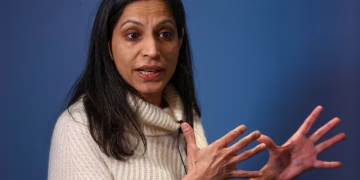Paris, France – Newly appointed Prime Minister Sébastien Lecornu has ruled out reinstating a France Wealth Tax or suspending the controversial pension reform, setting an early tone for his fiscal agenda as he works to assemble the 2026 budget.
Speaking to Le Parisien in his first major policy interview since taking office on September 9, Lecornu said his draft budget would aim for a deficit of 4.7% of GDP in 2026, only marginally above his predecessor François Bayrou’s target of 4.6%. The forecast compares with a deficit of 5.4% this year.
“There is political and societal demand for greater fiscal justice,” Lecornu said, while rejecting proposals such as economist Gabriel Zucman’s call for a 2% levy on France’s wealthiest 0.01%, backed by the Socialist Party. “Is the Zucman tax the right answer? Personally, I do not believe so.”
Lecornu, President Emmanuel Macron’s fifth prime minister in under two years, faces the daunting task of steering a divided parliament toward consensus. Macron’s alliance lacks a majority, meaning both conservatives and socialists will be needed to pass the budget. That challenge is complicated by Lecornu’s firm stance against Socialist demands on wealth taxation and pension reform reversal.
Socialist spokesman Arthur Delaporte criticized Lecornu’s plan as “a continuation of Macronism,” warning that the new prime minister risks facing the same fate as Bayrou, who was ousted by lawmakers earlier this month.
Lecornu stressed that parliament will ultimately shape the final budget package, framing himself as a mediator rather than an architect. Still, he cautioned that failure to secure a deal could push France’s deficit toward 6% next year.
He also sought to ease investor concerns, insisting that “the IMF is not at France’s doorstep,” even as debt levels remain high. Lecornu said he plans to finalize his government by early October, underscoring his commitment to stability.
For markets and voters alike, the rejection of a France Wealth Tax signals continuity with Macron’s pro-business policies, even as calls for fiscal fairness grow louder across the political spectrum.






